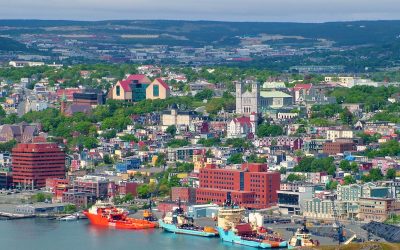In all the fuss about the Canadian rail disruption, one thing jumped out at me. Here’s how the National Post reported it:
“Despite the economic impacts, the Canadian Industrial Relations Board ruled earlier this month that the railway workers are not an essential service.”
Every member of this board should be sacked. Immediately. Because if rail is not essential, nothing is.
Did none of them pay attention in grade school? Canada was built on the railway. British Columbia joined confederation as a result, and all the gaps in between were filled in in large part because there was rail.
Yet every few years, Canadians and the Canadian economy is held hostage by some sort of disruption involving rail, usually a labour one, but occasionally a protest movement or even the weather, as if this is our first year living in the great white north.
The playbook is worn out already. After several days of pain and homage being paid to the rights of the workers to strike (yet no one talks about the rights of companies to lock out workers), the federal government eventually takes action and things get back to normal.
In this case, the feds let the entire rail network of CN and CPKC shut down on Thursday, Aug. 22, before ordering binding arbitration. But as I write this the morning of Friday, Aug. 23, the Teamsters have served strike notice on CN about an hour ago. I’m not going to try to keep up with all the developments. Maybe by the time this is published, it will all be resolved. But it seemed like that resolution was yesterday, and it fell apart today, so who knows?
And frankly, I don’t care, and I don’t think you should, either. Perhaps the union members have a point in their issues. Maybe the rail companies do, too. Fundamentally, it doesn’t matter. Sort it out. Put on you big boy/girl shorts/panties. Make it work.
At no point, ever, in the history of this nation, has rail service not been essential. From farmers needing to ship their grain at harvest to cities needing chlorine for water treatment to pavers needing asphalt from the Lloydminster refinery before the fall paving season ends, rail is utterly critical to our existence as a nation.
And anyone who says we can just backfill with trucks is a fool. A typical train these days has over 100 cars. Each rail car, depending on the load, is at least one, and often several truckloads. A train needs two crew to operate it. Are you going to come up with 100 to 200 truck drivers to replace that one, individual train, as well as the trucks, trailers, and space on the highways in a moment’s notice, and then do that for the entire economy?
Let’s look back at the rail blockades of 2020 in support of the Wet’suwet’en opposition to the Coastal GasLink pipeline. Because the blockades were related to First Nations politics, the federal Liberal government was loathe to step in. In a nod to George Orwell’s Animal Farm, it proved that in the 21st century, “some animals are more equal than others.” In this case, some First Nations were more equal than others, and could block rail lines at will, dramatically impacting parts of the economy. Never mind that the pipeline that was so ardently opposed is now the salvation for other First Nations bands to go ahead with their own Cedar LNG facility, dramatically improving their economic prospects.
Did the government perhaps learn something from the 2020 blockades – that rail disruption can’t allow these things to go on forever, especially because it would now impact the entire economy? Maybe. But if so, maybe the federal minister should have acted before an actual stoppage took place.
And that’s the key thing. Rail is nothing new to Canada. It’s almost as old as the nation itself. And yet there’s always something causing grief. Sometimes rail performance is blamed on snow in the mountains, or cold, as if this is the first time there’s ever been cold, or snow, or both, in Canada. Except they made it work for over 140-odd years, why are we now unable to make things work? Why, after the same 140-odd years of operation, we still have labour strife over rest periods and operations? Hasn’t that been enough time to figure it out, both from the company and labour sides?
How many more decades, nay, centuries do we need to figure out how to run a railroad?
Brian Zinchuk is editor and owner of Pipeline Online, and occasional contributor to the Frontier Centre for Public Policy. He can be reached at brian.zinchuk@pipelineonline.ca.



